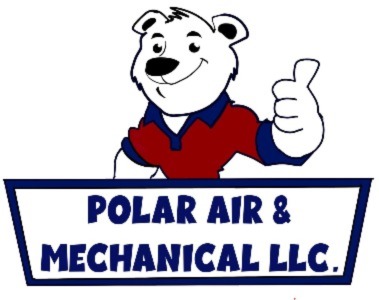Buying your first home is thrilling. You’re likely trying to keep track of a dozen things or more to ensure you’re making the right choice. We believe that gaining insight into your potential new HVAC system is vital. The property’s HVAC system represents a significant investment and source of potential long-term costs, which is why due diligence helps all first-time homebuyers.
In this guide, we’ll outline seven tips for learning everything you can about a home’s heating and cooling setup. And if you want a more in-depth opinion from the pros, feel free to call Polar Air & Mechanical. Our staff can help you compare your options with industry insights you won’t find elsewhere.
1. Which Kind of HVAC System Does the Home Use?
Start by determining what type of HVAC system the home features. Furnaces generally last longer than air conditioners, and some of the latest types of HVAC equipment like heat pumps feature average life spans that are impressively long. Getting the details on the make and specific model provides a clear understanding of how much maintenance it will require.
2. What Is the Current System’s Age?
It’s just as smart to learn how old the HVAC system is when you’re looking at a potential new home. On average, HVAC systems should survive for around 10-12 years. Having the knowledge of when it was installed helps you plan for possible repair needs or considerations if it might shut down for good. Older systems are at a higher risk of problems, so fiscal planning for a replacement unit could be necessary sooner than you thought.
3. Is the Warranty Active?
Be sure to check the HVAC system is covered by a warranty. If it is, you’ll appreciate how it can assist with maintenance expenses. HVAC warranties typically include parts and labor, but it’s important to note that details will vary. Make sure you go over any terms that aren’t familiar to make sure you fully understand your coverage and potential out-of-pocket costs.
4. Has the System Ever Been Professionally Serviced or Maintained?
Next, examine the maintenance history of the HVAC system, if the records are accessible. This kind of information can reveal if the repair needs are high or how often a tune-up was scheduled. You should at least try to track down a history of key tasks such as changing the air filter, which is a positive sign indicating regularly scheduled tune-ups.
5. What Are the Energy Efficiency Ratings?
Finding a home that features an HVAC system with high energy efficiency means smaller utility bills and less of an impact on the environment. Locate the seasonal energy efficiency ratio (SEER) ratings for air conditioning along with the annual fuel utilization efficiency (AFUE) for furnaces. High SEER ratings mean more efficient cooling throughout the season, while higher AFUE ratings illustrate that the fuel is efficiently converted into useable heat.
6. Did You See Any Problems After Completing an Informal Inspection?
Even without heating and cooling expertise, you should still inspect the HVAC system on your own. Watch closely for any concerning items that might have been overlooked. This can mean bizarre noises, unequal airflow and attempts at concealing any obvious damage.
7. Is an Experienced HVAC Technician Available to Help?
If you’re unsure about the condition of the HVAC system, it’s never a bad idea to get input from experienced HVAC technicians. They are skilled at identifying things you might miss, including leaks in the refrigerant, wiring issues or inefficient ductwork.
A Chat with Polar Air & Mechanical Helps Take the Stress Out of Your Home-Buying Journey
Selecting your first home ought to be exciting, and Polar Air & Mechanical can ensure that doesn’t change. Get in touch with us at 843-484-3783. We can talk about how our HVAC services give you peace of mind, giving you what you need to dive into home-ownership with confidence.


